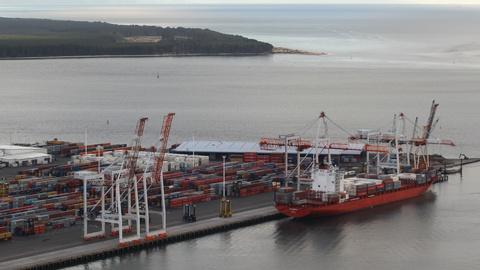
An application to discharge methyl bromide into the air at the Port of Tauranga has been declined.
The discharge of the gas was in relation to the pre-shipment fumigation of export logs.
The application, made by Envirofume Limited to the Bay of Plenty Regional Council, was declined by an Independent Commissioner on the grounds that methyl bromide was known, or suspected, to cause significant adverse effects on human health.
The gas is odourless, colourless and heavier than air and is classified as “acutely toxic – fatal” and could cause cancer, genetic mutations and neurological disorders.
The commissioner, Rob van Voorthuysen, said there was no certainty that the proposed discharge of the gas would meet the mandatory tolerable exposure levels set by the Envrionmental Protection Agency.
“The significant and potentially fatal effects on human health are not avoided and any such adverse effects, should they occur, cannot be remedied or mitigated,” he said.
The proposal said fumigation was a necessary quarantine requirement for some of the countries that import New Zealand logs.
The positive effects of discharging the gas, as set out in the proposal, included increased competition in the provision of fumigation services at the port, which would in turn result in increased innovation. Another positive effect was broader economic benefits for New Zealand by way of price differentials that reduced costs to the exporters.
The Green Party has applauded the decision.
“It’s fantastic that the Commissioner has recognised what the Green Party and others have been saying for a long time – that port workers and the neighbouring community should not be exposed to this potentially fatal pollutant,” Green Party pesticides spokesperson Steffan Browning said.